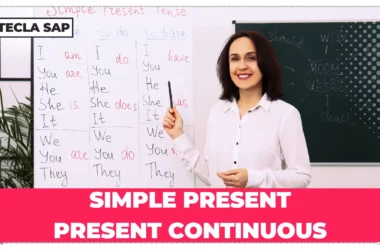Gramática: Conditional III
menos de 1 minuto Christine House e John Stevens Conditional III A: Oh damn, no coffee! I used the last of it last night. B: I’ve just been shopping. If you would have told had told me, I could have bought some. A: Sorry. My memory is getting really bad. B: You could do could have done something about it last year if you went had gone on that memory training course with me. A: What course was that? B: See? You’ve forgotten. You had missed would have missed Dave’s party last Saturday Continue lendo→

